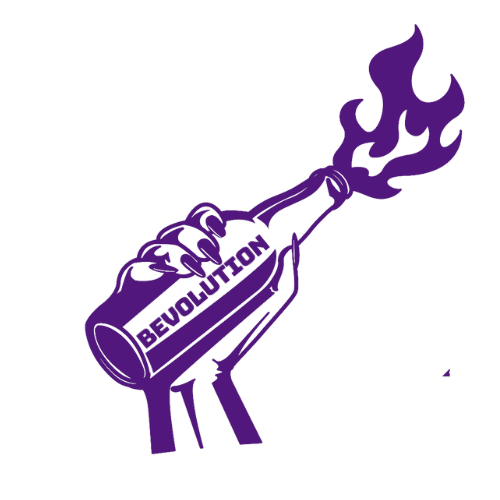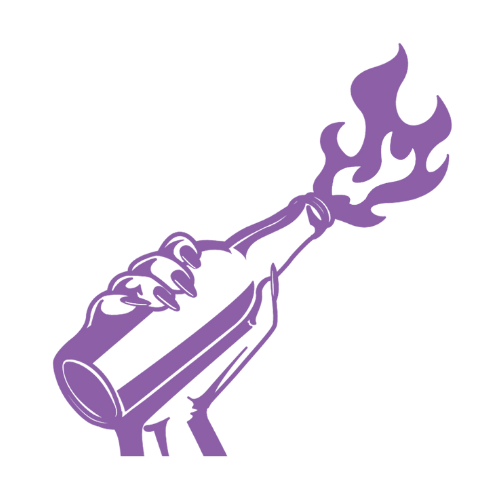How to Support Survivors & How to Heal From Past Trauma
Posted by womenofthebevolution January 11, 2022 Uncategorized
A conversation with Dr. Colleen Cira of the Cira Center, a team of behavioral health specialists who focus on trauma and women’s health.
In May 2021, Dr. Colleen Cira reached out to WOTB after seeing the flood of stories being shared by Brienne Allan @RatMagnet and offered to provide mental health resources to women who had shared their stories and women who have been triggered by the stories as well. In my conversation with Dr. Cira, I had recently spoken with a few women who felt their stories didn’t seem as important to share in comparison to the stories that had been posted. I knew I needed an expert to provide some guidance on navigating situations like this rather than me yelling “FUCK YES YOUR STORY IS IMPORTANT. SHARE IT!”
[Trigger warning: topics discussed including sexual harassment and sexual assault]
WOTB: In some of my conversations with women in the beer industry, I’ve had a few tell me they have stories to share but it’s not as “bad” as the ones being posted publicly so they don’t feel it’s worth sharing. What would you say to someone feeling that way?
Dr. Colleen Cira: Anything that happens to you that you experience as upsetting, disturbing, uncomfortable and/or traumatic is just that. Full stop. We live in a society that is constantly telling women (and loads of other marginalized groups of people) how to think, feel and behave. We also live in a society that prioritizes and protects white men above all else and blames survivors. So when you experience discrimination, harassment and/or assault, it’s VERY NORMAL to second guess yourself, blame yourself, criticize yourself and compare your experience to others. That’s exactly what our sexist and misogynistic society teaches women and wants survivors to do. But that’s (obviously) bullshit. Every survivor on the planet has moments (or a lifetime) of feeling this exact way which causes intense shame which means we are ALL suffering in silos, not talking about this thing that has happened to MOST OF US. Healing is our right and necessary for our wellbeing and one of the most powerful ways we can heal (and buck this fucked up system at the same time) is by speaking out and supporting each other as survivors. [At the end of our Q&A you’ll find an article written by Dr. Cira about victim blaming]
WOTB: The stories have also triggered women to being now reminded of instances they encountered similar situations and are later coming to terms that this was a form of abuse that they haven’t fully processed or addressed yet. How does this type of trauma affect ones mental and physical health over time? Are there signs?
Dr. Colleen Cira: Waking up to past trauma that you didn’t identify as such at the time can be incredibly disorienting and disturbing. It can make you feel “stupid” or betrayed or start to second guess everything. When we experience discrimination, harassment and/or assault on a regular basis – when it’s simply part of the culture and/or environment that we inhabit – our nervous systems that are meant to protect us are going off constantly and there are few opportunities for our bodies to get back to baseline. This chronic nervous system activation causes all kinds of problems for our minds, bodies and souls/spirit. Check out the graphics below for more details and signs/symptoms that your nervous system is dysregulated.
WOTB: As a peer or friend trying to be there for a survivor. What are some best ways to respond and support?
Dr. Colleen Cira: Research is clear that a positive disclosure experience (when a survivor tells someone about their trauma) is ESSENTIAL for their healing and wellbeing. And a negative disclosure experience can sometimes be every bit as traumatizing as the actual trauma. Here’s a few easy things you can do to make sure the survivor that is trusting you with their story has a positive disclosure experience.
1. LISTEN. Don’t interrupt, don’t give advice, don’t tell them it’s going to be fine, JUST LISTEN. This is easier said than done. You can say things like “That sounds so scary,” “I’m so sorry that happened to you,” “Is there anything that I can do to support you right now?”
2. BELIEVE. Don’t question, don’t inquire, don’t assume best intentions on the part of the perpetrator, JUST BELIEVE. You can say things like “I believe you,” “I hear you,” “You must’ve been so scared,” “It’s not your fault.”
3. SUPPORT. Once you’ve THOROUGHLY listened and made it clear that you BELIEVE her, you can and should continue to support her. You can do this in any number of ways: check in on her regularly, make her meals and/or buy her dinner, ask how you can help, offer to connect her to any resources you have, spend time with her, continue to listen to her (NO ADVICE), etc. The best thing you can do is let her know that you are there for her in a very open, non-judgemental way.
WOTB: Tell us more about what your programs and services offer for survivors of sexual assault and harassment.
Dr. Colleen Cira: At CCBH we serve the age and gender spectrum, but specialize in Women and Trauma. We offer individual therapy (self-pay, sliding scale, probono, BCBS, United and Medicare) with trauma-informed therapists as well as a Sexual Trauma Survivors’ Group.
WOTB: For those in an abusive situation whether in the workplace or not, what are the first steps to seek help and resources?
Dr. Colleen Cira:
1. Talk to someone you trust – just naming the assault/abuse is the first step toward healing and recovery.
2. RAINN is the nation’s largest anti-sexual violence organization and a comprehensive place to get resources: https://www.rainn.org/
3. Working with a therapist is also a great way to get 1:1 support during this process. You can find therapists on Psychology Today, Therapy for Black Girlsand many other directories.
Article: Sexual assault: Why is victim-blaming problematic/harmful?
by Dr. Colleen Cira
In particular, my area of specialty is Sexual Assault and Abuse so I have been dealing with victim blaming and the negative effects it has on survivors for a really long time.
For the most part, victim blaming happens because we’d all prefer to be in denial about terrible things and injustices. We hear it all the time about every issue under the sun: “Poor people are poor because they are lazy.” “Women get raped because they were wearing something “slutty.” This kind of rationale is FAR too simplistic and oftentimes completely inaccurate, but our brains are built to categorize things and keep it simple. But the problem is that we don’t live in a simple, easily categorizable world. Life is really grey, but our brains struggle with that sometimes. So when life is complicated and disturbing, it takes a tremendous amount of deliberate thought and emotional maturity to just deal with how unpleasant that reality is and it’s a whole lot easier to dismiss it with some simplistic explanation.
The other reason that people victim blame is because fear also kicks in right alongside the denial. We hear about someone else’s world being turned upside down, for example, a parent forgetting their child in a carseat during the summer and the child dies. Immediately many people criticize the parent, throw every ugly accusation in the book at them, insist they must be a terrible parent all because if we point the finger at others, it makes us feel like it couldn’t happen to us. Which is what we really want to feel; that whatever terrible thing happened to someone else couldn’t happen to us…because we do work hard…because we don’t dress slutty…because we’re a good parent who would NEVER make a mistake like THAT.
The effect that this has on survivors is the far more complicated part. The part is that straightforward is that when someone victim blames, at best it minimizes the survivors feelings about the assault/abuse. The survivor may feel judged, misunderstood and certainly unsupported. But that’s where the simplicity ends.
Victim blaming can lead people to feel like the assault/abuse was their fault, which survivors are already prone to feeling. Victim blaming may forever tarnish a sacred relationship if the person who is supposed to be supportive (a romantic partner, a parent, a trusted friend) is blaming instead of supportive. Victim blaming is part of what can make a disclosure experience (telling someone about the assault/abuse) a really negative thing, which can sometime be more difficult to recover from than the assault/abuse itself. I can’t tell you how many clients I’ve worked with who felt more devastated that their Mom didn’t divorce their Dad once the survivor disclosed than by Dad’s abuse. The client who ultimately wound up divorced after she told her husband about her assault because he found ways to passively shame her for it.
I agree that this is a horrible epidemic, but it’s one that will persist because of our brain’s need to categorize/explain and our psychological need to distance ourselves from terrible things. Only with a tremendous amount of education and people being more willing to be vulnerable will this get better.
To connect with Dr. Colleen Cira and learn more about the Cira Center, please go to CiraCenter.org or email her directly at drcira@ciracenter.org.
Mental health resources in the hospitality industry are hard to find. An organization looking to change that called Infinite Ingredient is currently fundraising in order to provide access to mental health resources for craft beverage industry professionals. Learn more and get involved at https://www.infiniteingredient.org.
Through the Bevolution Brave Voices Fund, this financial aid program is meant to help those in the brewing / alcohol industry leave toxic workplaces and receive the necessary means in order to move forward. Learn more about the fund and help us spread the word here.







